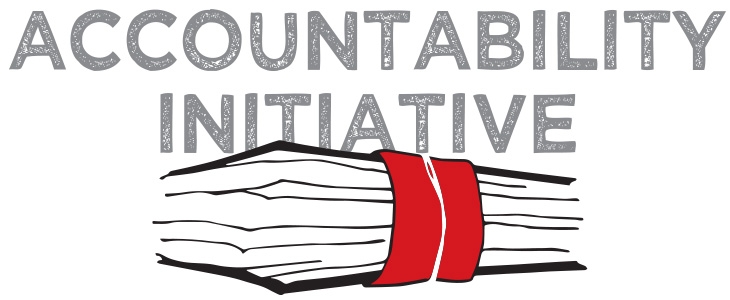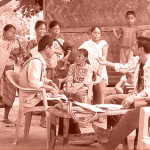
CPWD, PWD, NDMC, DJB – Multiple agencies but no accountability!
1 October 2010
Every year it’s the same story. The monsoons hit Delhi and life in the city comes to a grinding halt. For a city that so craves the rain every summer we are remarkably unprepared for it. Traffic snarls, blocked drains, flooded roads, power outages and road collapses make for an unpleasant experience. Couple these with the inevitable dengue, malaria and viral fever outbreaks and you’re in for a pretty rotten monsoon. And then there’s the Commonwealth Games…well I think enough’s been said on that front. I don’t know about you, but I’m getting a little tired of the déjà vu. I mean we all know the score. Delhi + Monsoons X Flooding, Road Cave-ins, Disease etc = Chaos. Check. Okay so maybe we had record rainfall this year and the Yamuna is flowing at an all time high, but still, shouldn’t government agencies at various levels be prepared for this?
The problem isn’t so much with the rain as it is with the structure of municipal governance in the city.
- Multiple agencies: Mind bogglingly, Delhi has over a 100 civic agencies tasked with overseeing municipal services such as land usage, roads, transport, water, electricity, sewage and flood control etc. These agencies include the Municipal Corporation of Delhi (MCD), the New Delhi Municipal Council (NDMC), the Delhi Cantonment Board (DCB), Delhi Jal Board, Delhi Development Authority, Central Public Works Department (CPWD), Public Works Department (PWD) etc. What makes things even more complicated is the fact that these agencies report to different ministries and departments.
- Dual Jurisdiction: Unlike other metropolitan cities in the country, Delhi has the dubious distinction of being the seat of both the Union Government and the Government of National Capital Territory of Delhi (GNCTD). In practice this makes for a pretty complicated administrative set-up with some parts of the city under the administration of Central Government agencies and others under the Delhi government. So while agencies such as the MCD, DDA, Delhi Police and CPWD are answerable and accountable to the Central Government, the PWD, DJB and Delhi Transport Corporation (DTC) report to the Delhi Government. This makes for confusing and parallel structures of governance where it’s unclear where the jurisdiction of one government starts and the other ends. This duality has for long been exploited by various agencies to pass the buck.
- Overlapping responsibilities: It’s often said that too many cooks spoil the broth and it couldn’t be truer than in Delhi. From water, public works, sanitation, land, you can be pretty sure there’s more than one civic agency involved. Here’s a quick snapshot of the extent to which this is true.
|
Civic Agencies providing basic services in Delhi
|
||||
|
Service |
Urban Planning & Development |
Roads |
Water & Sanitation |
Land (Residential & Industrial) |
|
Departments Responsible |
DDA MCD NDMC CPWD
|
CPWD PWD MCD NDMC Cantt. Board DDA etc. |
Delhi Jal Board MCD DDA NDMC |
DDA CPWD L&DO DSIDC Govt of Delhi MCD NDMC Cantt Board.
|
- No answerability or accountability: What do you get when you have multiple agencies responsible for the same services and reporting to different departments? No answerability and no accountability. The current CWG fiasco is a prime example where each agency blames the other. So we have PWD faulting the quality of CPWD construction work and the NDMC complaining the MCD isn’t doing what it should to keep the city free of dengue and malaria. As agencies play pass the parcel, Delhi’s residents are left wondering who to hold responsible.
Theory suggests that strengthening accountability relationships between citizens, service providers and policy makers is critical to ensuring the effective delivery of services. But that can be hard to do when there just is not enough information available about who’s supposed to do what. So if you’re not sure who is responsible for road construction and maintenance in your neighbourhood, it’s not going to be easy to pin them down and hold them accountable. Thus, in the context of public service delivery, access to better information is increasingly regarded as a key step towards strengthening citizen claims of accountability on service providers and policymakers (World Development Report 2004, Making Services Work for Poor People).
The RTI Act instrumentalises this approach by requiring all public authorities to proactively disclose 17 categories of basic information on their websites and through other means. This includes information about their organisational structures, budget, directory of officials, projects, annual plans etc. In practice this means agencies such as the MCD, PWD, NDMC, CPWD etc should be disclosing proactively information about the various public works that they are involved with on a regular basis. Sadly, Section 4 disclosure continues to be poorly implemented by most of these agencies. Scroll through their websites and the information you’re likely to find the information is usually out of date. Ensuring better and more effective information disclosure by municipal agencies is one way of ensuring that agencies perform the functions they are supposed to. The Central Information Commission has been pushing for stronger implementation of Section 4 of the RTI Act for the last few months with interesting results. It recently issued orders to municipal agencies in Delhi to disclose detailed information on the contracts issued to consultants for projects under the Commonwealth Games. In a rare instance, the NDMC has complied with the CIC’s orders and put up a detailed list of consultants hired to carry out CWG work (click here to read the information disclosed by the NDMC).
There is clearly a need for broader municipal reforms in Delhi to streamline the provisioning of services and responsibilities of agencies. But as is the case with all major governance reforms – that’s likely to take a while! In the meantime, pushing for better information disclosure by municipal agencies may be one way of bringing in greater accountability and transparency.
Mandakini Devasher is a Research Analyst with the Accountability Initiative.





